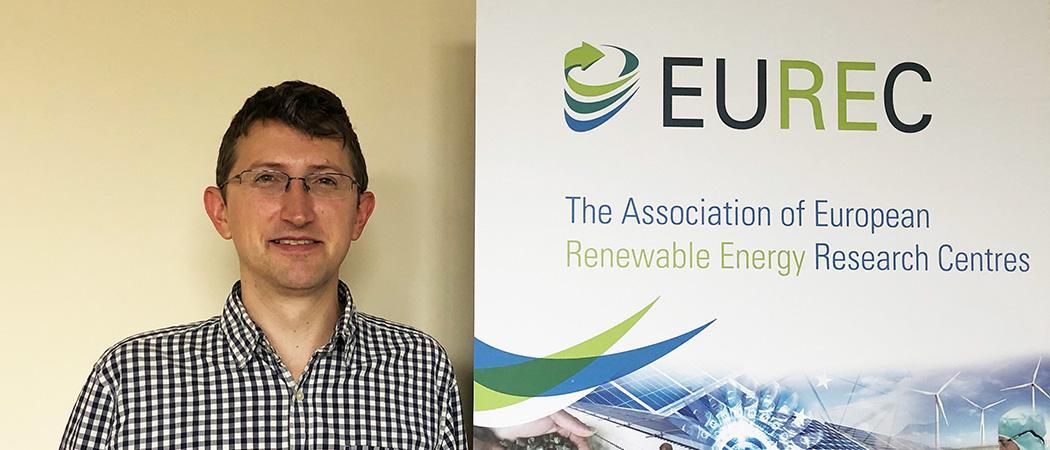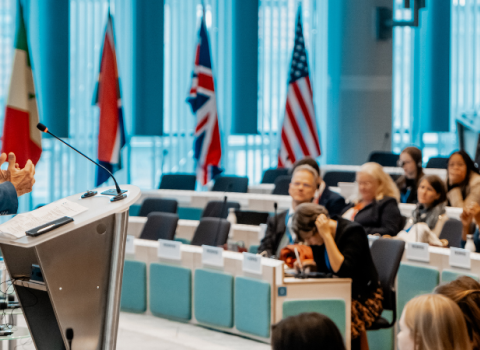Expanding the scope of the programme to include technologies ‘that may not be innovative’ is not the way to reduce EU greenhouse gas emissions

Greg Arrowsmith, secretary general of EUREC.
If the Environment Committee has its way, the Innovation Fund will be one of the shortest-lived major programmes ever set up by the EU, having lasted from 2019-2023.
The programme was set up to focus on “highly innovative technologies and big flagship projects within Europe that can bring on significant [greenhouse gas, GHG] emission reductions,” and was intended to complement Horizon Europe’s funding for Climate Energy and Mobility.
However, today it has fallen victim to entropic forces pushing it to become a general-purpose money-hose.
The committee voted this afternoon to turn the "Innovation Fund" into the "Climate Investment Fund" and to hugely expand its already wide scope. It will become the handmaiden of RePower EU, the strategy to diversify the EU’s energy supplies towards renewables at double-quick speed in the wake of Russia's war on Ukraine.
Environment Committee MEPs want the Climate Investment Fund to supply big bucks for the deployment of the hundreds of GW needed by 2030. Unlike the current Innovation Fund, the Climate Investment Fund may be used for "the scaling up of techniques, process and technologies that may no longer be considered innovative."
Renewables, energy efficiency, clean transport technologies must be rapidly deployed, but not with the dirtiest (in a climate sense) money that it’s possible to find.
The Innovation Fund - and if MEPs get their way the new Climate Investment Fund - money comes from the sale of allowances to release a tonne of CO2 to the atmosphere. If the EU retires those allowances or otherwise stops them reaching the carbon market, GHG emissions don’t happen. Sell them on the carbon market, and they do.
Any installation funded from these proceeds creates an emission, not by the plant itself, but upstream to create its cash grant or cheap loan.
Can taking this carbon hit ever be justified? The calculation made by the Commission and EU lawmakers over the past decade, was yes, but only in the special, limited circumstance of helping highly promising technologies that could leapfrog the capability of incumbents.
This makes sense. Had the Emissions Trading Scheme (ETS) existed in the early 2000s, and contained a similar carve-out for innovative technology, it would have been worth venting a hundred million tonnes to develop the first GW of the then nearly unknown ‘solar photovoltaics’, a technology that humanity is now pinning its hopes on.
The Environment Committee is proposing (in effect) not merely to hand out allowances for free to ETS- and non-ETS sectors, but to add a layer of bureaucracy to check things like fair shares to each country and sector. Its proposal is two steps backwards.
Robust regulation
The aim of Climate Investment Fund is to smooth the path to commercialisation of new technology, but there’s a better way to achieve this. Governments should pass robust regulation that encourages investment in renewables by individuals and companies, supported with incentives where necessary.
Technologies that have earned their stripes in Innovation Fund, Horizon Europe or national funding programmes and that are on the cusp of competing with fully commercial technology, should be given specific support. A year ago in these pages I promoted the idea of a target for innovative renewable energy alongside the headline target of 40% (or more) by 2030 in the upcoming revision to the Renewable Energy Directive, to prepare member states for the fact that they should put this support in place.
The Innovation Fund should be maintained with its current scope.
The Environment Committee wants to bring back into primary legislation the requirement that funded projects “share knowledge” with each other. The EC is given room, potentially, to demand that more knowledge (results) from its funded projects is shared than at present. Innovation Fund’s grants are huge and give the winner a big advantage.
The winners, with their head start, must help their competitors by at least sharing in detail their experience. We have advocated for detailed datasets on the projects’ performance to be shared.
Greg Arrowsmith is secretary general of EUREC, the Association of the European Renewable Energy Research Centres





 A unique international forum for public research organisations and companies to connect their external engagement with strategic interests around their R&D system.
A unique international forum for public research organisations and companies to connect their external engagement with strategic interests around their R&D system.